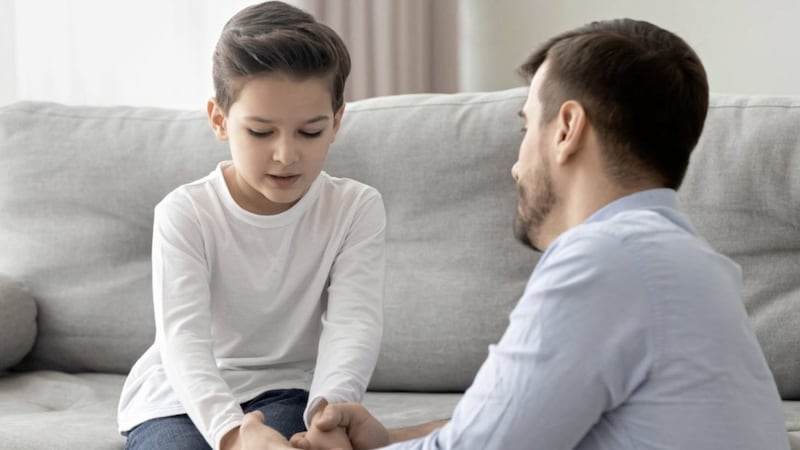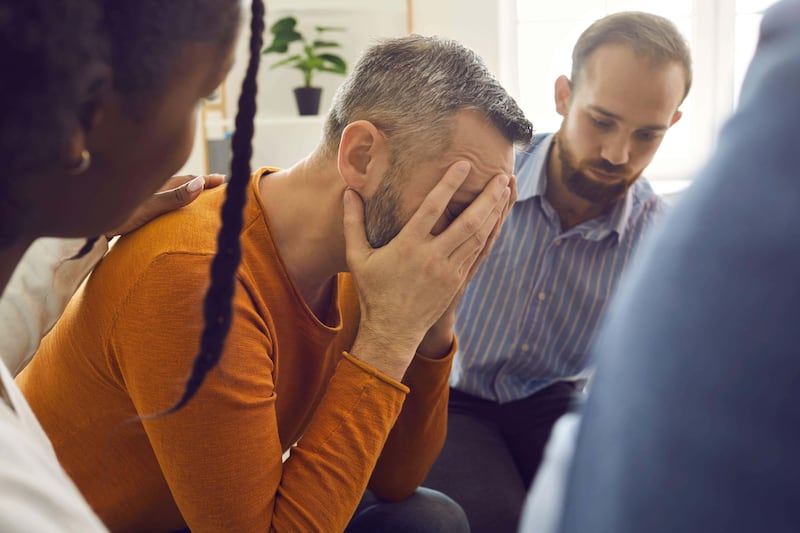THE loss of a grandparent – or even a parent – has become a horribly real fear for children during the Covid-19 pandemic. And if the worst does happen, while the rest of the family is dealing with their own grief, they need to help children cope with the death too.
But what's the best way to help children deal with the death of a loved one, particularly if – as in the vast majority of cases – they've never experienced a relative's death before?
The bottom line is that adults should be open and honest with children about what's happened, advises Jo Thurston, a family support worker at the Action for Children charity (actionforchildren.org.uk), who stresses: "Be open about emotions."
Here are her tips on how to help children through this difficult time:
:: Be honest
When it comes to telling your child that a grandparent or someone else they love has passed away, the best approach with all children is honesty, even though this may be very hard.
It's important you make it age-appropriate as well. Younger children especially have no real concept of death, so if you tell them someone has 'gone away' or 'to the stars' they may think their loved one will come back at some point. It's important to be clear and tell them the person has died and won't be coming back, however much we may want them to.
Answer any questions they may have and be prepared to explain what's happened several times. This can be distressing, but your child may need this reassurance as they process the information. There are some brilliant organisations like Child Bereavement UK (childbereavementuk.org) that can help.
:: Reassure children their feelings are normal
Let them know that whatever they're feeling is normal. It's fine to be angry, to be upset, to cry. These are all emotions that we as adults feel during the grieving process and your child is going to feel them too.
:: Be honest about your own grief
They'll have questions about what's happening as it's a lot for them to process, so be honest and transparent with them about how you're feeling. You'll be going through your own grief and they're going to see that.
:: Try to keep some routine
Routine is more difficult at the moment with everything so different, but try to create a new kind of normal. If children are feeling anxious, get outside if you can, as physical activity will help. If you have to stay indoors then try some mindful colouring or even stress toys to help ease anxiety and create a calming distraction.
:: Make a memory box
Remember lovely times you shared with the person who's passed away, and celebrate their life. One nice way to do this is to create a memory box. Let it be led by the child and tell them they can put any object that sparks a memory of that person in it. Pictures are nice but it can be as random as they like. It's a lovely thing that lets you share happy memories as you find things for the box, but also is something they can go back to at times when they need comfort.
You can use an old shoe box and decorate it, then think of things that can go inside – maybe an item of the person's clothing, some perfume or aftershave sprayed on something to remember the way they smelled, cards they sent you, tickets from events that you went to together, even things like their glasses. Apps such as Nelson's Journey (nelsonsjourney.org.uk) will also help children to make a memory jar on their phone or tablet.
:: You are grieving too
It's essential that you look after your own emotional wellbeing to be able to support your child. This may feel really hard, especially while we're socially isolated, but access your support network in whatever ways you can. People will want to help you and be there for you, so find someone you feel able to talk to.
As with children, you'll also need to talk about the person you've lost, remember things you've done with them, and share special memories. Self-care is really important – make sure you're still resting and eating regularly, and try to get outdoors.
Understand there are a range of emotions that come with grief, including shock, denial, anger, bargaining, depression and acceptance. Don't expect too much of yourself – it may take a while to reach acceptance but the process of grieving is really important. If you can, make some time for yourself.
Think about things you can do that help you with anxiety, anger and sadness – this may be something creative, cooking, gardening, reading, or meditation, or could be doing something with your family – try and build these things into your day.
If you're struggling, there are places you can try for help – your GP, and also organisations like the bereavement charity Cruse (cruse.org.uk).
:: Go back to basics
Make sure you and your child are eating healthily, getting enough sleep and taking time to exercise. Looking after the fundamental building blocks of physical health will strengthen how well the family are able to cope with all the emotions they'll inevitably be dealing with. Call upon friends and family to offer support where needed – via phone calls, video chats and even letters – it will be good for children to feel supported by their extended family and support network too.








